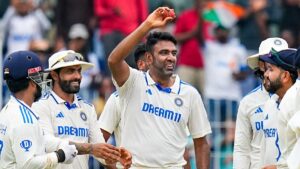India’s 1st depression surgery in Mumbai post Mental Health Act 2017 | India News – Times of India

MUMBAI: A 38-year-old Australian woman who had been battling depression for the past 26 years became the first to undergo a psychiatric operation in Mumbai and perhaps the first in India since the new Mental Healthcare Act was passed in 2017.
According to the provisions of the new Act, a psychosurgery can be carried out only after the patient gives informed consent and a specially constituted state mental health board gives its approval. In the past, a hospital board would weigh such applications.
For the Australian patient, the process which began with approaching neurosurgeon Paresh Doshi to getting permissions from the state to getting operated on May 28, took 10 months.
“Maharashtra has not only been ahead of many other states in setting up a mental health board, it has now become the first to give permission for a surgery,” said Dr Doshi, who operated on the patient in Jaslok Hospital, Pedder Road.
Depression is the most common mental health problem, with some studies pegging the incidence at 15% of the population. About a third of these patients have depression that is resistant to various forms of treatment, be they pills or shock therapy.
As a last resort, some patients are offered deep brain stimulation (DBS) surgery in which electrodes are placed in the brain to change the neuro pathways. DBS is used for a host of neurological conditions-from Parkinson’s to obsessive-compulsive disorder and depression. “We operated on three patients with depression in the past and they are doing well,” said Dr Doshi.
“Maharashtra and Karnataka are the only states where DBS surgeries have been regularly conducted for depression in the past. This time, too, Maharashtra responded quickly by constituting a board and evaluating the Australian patient’s application,” said Dr Swapnil Lele who is the director of health services in Maharashtra.
The patient, who didn’t want to be named, has been battling depression for 26 years and had tried various combinations of antidepressants and therapies.
Although she is a trained occupational therapist, she stopped going out for work seven years back. She had tried 20 different antidepressants and was prescribed at least five medicines in very high doses than usual, said her brother. She had also undergone ECT (electroconvulsive therapies) and cognitive and behavioural therapy, without much benefit.
Her family got Dr Doshi’s reference from two Australian patients who had undergone DBS for depression at Jaslok Hospital years back. “After communicating with them, we zeroed down on Mumbai over 10 months back,” said her brother. DBS is not offered in Australia as it’s still considered an experimental therapy.
The patient underwent DBS surgery roughly three weeks back. “During DBS surgery, the patient is awake so that we can map responses while placing the electrodes,” said Dr Doshi. The patient’s anxiety significantly dropped and her mood improved slightly during the surgery, he added.
It will take a few months for the surgery’s effects to show clearly, said the doctor.
The patient and her brother left India on Friday for Melbourne.
According to the provisions of the new Act, a psychosurgery can be carried out only after the patient gives informed consent and a specially constituted state mental health board gives its approval. In the past, a hospital board would weigh such applications.
For the Australian patient, the process which began with approaching neurosurgeon Paresh Doshi to getting permissions from the state to getting operated on May 28, took 10 months.
“Maharashtra has not only been ahead of many other states in setting up a mental health board, it has now become the first to give permission for a surgery,” said Dr Doshi, who operated on the patient in Jaslok Hospital, Pedder Road.
Depression is the most common mental health problem, with some studies pegging the incidence at 15% of the population. About a third of these patients have depression that is resistant to various forms of treatment, be they pills or shock therapy.
As a last resort, some patients are offered deep brain stimulation (DBS) surgery in which electrodes are placed in the brain to change the neuro pathways. DBS is used for a host of neurological conditions-from Parkinson’s to obsessive-compulsive disorder and depression. “We operated on three patients with depression in the past and they are doing well,” said Dr Doshi.
“Maharashtra and Karnataka are the only states where DBS surgeries have been regularly conducted for depression in the past. This time, too, Maharashtra responded quickly by constituting a board and evaluating the Australian patient’s application,” said Dr Swapnil Lele who is the director of health services in Maharashtra.
The patient, who didn’t want to be named, has been battling depression for 26 years and had tried various combinations of antidepressants and therapies.
Although she is a trained occupational therapist, she stopped going out for work seven years back. She had tried 20 different antidepressants and was prescribed at least five medicines in very high doses than usual, said her brother. She had also undergone ECT (electroconvulsive therapies) and cognitive and behavioural therapy, without much benefit.
Her family got Dr Doshi’s reference from two Australian patients who had undergone DBS for depression at Jaslok Hospital years back. “After communicating with them, we zeroed down on Mumbai over 10 months back,” said her brother. DBS is not offered in Australia as it’s still considered an experimental therapy.
The patient underwent DBS surgery roughly three weeks back. “During DBS surgery, the patient is awake so that we can map responses while placing the electrodes,” said Dr Doshi. The patient’s anxiety significantly dropped and her mood improved slightly during the surgery, he added.
It will take a few months for the surgery’s effects to show clearly, said the doctor.
The patient and her brother left India on Friday for Melbourne.









